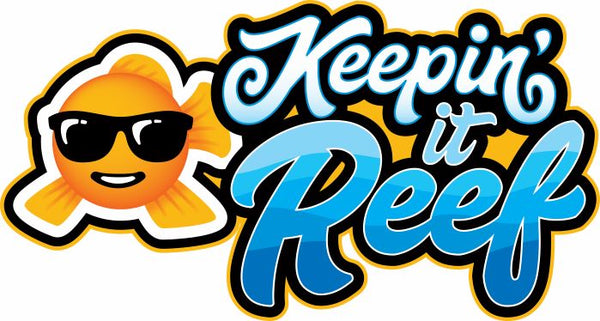Reef salt is a cornerstone in the maintenance of saltwater and reef aquariums, providing the necessary minerals and elements to mimic the natural ocean environment. But a common question among aquarists is, “Does reef salt go bad?” Understanding the shelf life and proper storage of reef salt is crucial for maintaining a healthy aquarium. Let's dive into this topic and explore the factors that can affect the longevity and effectiveness of your reef salt.
Understanding Reef Salt
Reef salt is a specially formulated blend of salts and minerals designed to create a synthetic seawater environment. It typically includes sodium chloride along with essential elements like calcium, magnesium, and trace elements that corals and marine life need to thrive.
Does Reef Salt Expire?
Technically, reef salt itself does not expire in the same way that food or medications do. However, it can degrade over time if not stored properly. Here are some factors that can influence its effectiveness:
-
Moisture Exposure: One of the biggest enemies of reef salt is moisture. When reef salt absorbs moisture from the air, it can clump and become difficult to dissolve. More importantly, the chemical composition can change, affecting its ability to create the perfect seawater mix. Always keep reef salt in a tightly sealed container to prevent moisture from getting in.
-
Contamination: If the reef salt is not stored in a clean, dry place, it can become contaminated with dust, debris, or even pests. This contamination can introduce unwanted elements into your aquarium, potentially harming your marine life.
-
Storage Conditions: The shelf life of reef salt can be significantly extended by storing it in a cool, dry place. High temperatures and humidity can accelerate the degradation process. Avoid storing reef salt in areas like garages or sheds where environmental conditions can fluctuate dramatically.
Signs That Your Reef Salt May Have Gone Bad
While reef salt doesn’t have an expiration date, there are signs that it may no longer be suitable for use:
- Clumping: If the salt has clumped together and hardened, it’s an indication that it has absorbed moisture. While it may still be usable, it can be more difficult to measure and dissolve accurately.
- Discoloration: Any significant change in color can be a sign of contamination or chemical changes.
- Unpleasant Odor: Fresh reef salt should have a clean, salty smell. Any off or unusual odors can indicate contamination or degradation.
How to Store Reef Salt Properly
Proper storage is key to maintaining the quality and effectiveness of your reef salt. Here are some tips:
- Use Airtight Containers: Transfer reef salt from its original packaging to airtight containers. This helps prevent moisture and contaminants from entering.
- Keep it Dry: Store the containers in a dry area away from sources of humidity. Consider using silica gel packets in the storage container to absorb any residual moisture.
- Cool Environment: Store reef salt in a cool place, away from direct sunlight and heat sources. Consistent, moderate temperatures are ideal.
Using Old Reef Salt
If you come across an old batch of reef salt, don’t discard it immediately. Inspect it first:
- Check for Clumps: If the salt is clumped but not discolored or foul-smelling, you can often break up the clumps and use it after ensuring it dissolves completely.
- Test the Water: Mix a small batch and test the water parameters. If the salinity, pH, and other critical parameters are within the expected range, the salt is likely still usable.
- Watch for Precipitation: When mixing, if you notice excessive precipitation that doesn’t dissolve, it may be a sign that the salt has degraded and might not provide the necessary minerals and elements correctly.
Bringing It Home
Reef salt doesn’t have a strict expiration date, but its effectiveness can diminish over time if not stored properly. We think of it as - if our reef salt bucket is getting used up, that means we're doing the right thing and keeping up with basic reef tank husbandry. By keeping it in a cool, dry place and in airtight containers, you can ensure it remains viable for a long period. Always inspect and test old reef salt before using it to ensure it will maintain the optimal conditions for your marine aquarium. Proper storage and handling of reef salt will help you keep a thriving, healthy marine environment.
Remember, the key to a successful reef tank is consistency and attention to detail, and that starts with the quality of your reef salt!
Keepin' It Reef is ready to assist you with all of your aquarium needs! We lead with Red Sea Salt and Red Sea Coral Pro Salt for all of our store needs! We think you'll love it, too!

